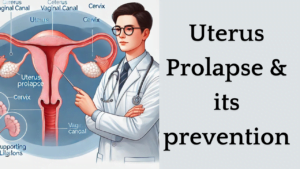
Hypersomnia:
Hypersomnia is a sleeping disorder. The tempo of the present day causes the predominant problem that is connected with sleep disorders. The entire excessiveness goes unnoticed in conditions of one of such disorders – hypersomnia. Contrary to those with insomnia who either have problems falling or remaining asleep at night, hypersomniacs suffer from daytime sleepiness even after getting enough sleep including oversleeping.

Understanding Hypersomnia:
Hypersomnia refers to oversleeping after waking up in the morning, which can be so severe that a person may find it difficult to stay awake at work during the day because of experiencing excessive tiredness in the morning when leaving their bed after a night of rest. This illness seriously affects someone’s way of living by rendering them unable to perform both at home and work places. Distinguishing between normal fatigue and this disease is important. Hyper sleepiness requires medical help while tiredness results from everyday activities like work or studies.

Symptoms of Hypersomnia:
One of the main reasons why you should know how to recognize the symptoms of hypersomnia early enough is because it will help ensure that proper diagnosis and treatment are done in time. Below are some signs which are generally seen:
- Excessive Daytime Sleepiness (EDS): The key feature of this disease is experiencing too much sleepiness during the day even after having had a good night’s rest. This may result in accidental napping episodes at inappropriate or dangerous moments such as while driving or working.
- Long Sleep Duration: Most persons with this tend to have prolonged nights rest often more than ten hours yet they feel unrested at all times even upon waking up.
- Difficulty Waking Up: In the morning, it might be hard for these individuals to wake up necessitating use of multiple alarms or external help.
- Cognitive Impairment: Insufficient sleepiness can lead to impaired cognitive abilities that include memory problems, lack of concentration as well as slow thinking.
- Irritability and Mood Swings: It can also result in getting easily pissed off; anxiety etc but this would affect their social relationship since interpersonal skills are dependent on how one’s mood is.
- Reduced Energy Levels: Lack motivation makes someone feel low on energy hence difficult engaging themselves daily activities or hobbies.

Causes and Diagnosis:
The specific reason of hypersomnia is not obvious, but it can result from several factors such as:
Sleep Disorders: Conditions including sleep apnea, narcolepsy and restless leg syndrome may lead to hypersomnia.
Medical Conditions: Hypersomnia is associated with some illnesses like depression, multiple sclerosis or Parkinson’s disease
Substance Use: Alcohol, drugs or some prescriptions may cause disruption in the sleeping patterns leading to too much sleepiness.
Genetics: Hypersomnia can be genetic meaning it may be inherited.
Usually hyperosomnia is diagnosed by means of a deep medical history, physical check-up and such types of sleep surveys as polysomnography or multiple sleep latency test (MSLT).
Treatment and Management:
In order to manage hypersomnia, it is important to do many things. Some treatment options are:
Medication: taking some medicines like stimulants or wake-promoting compounds helps in keeping off unnecessary fatigue.
Behavioral Therapy: this exfoliates on cognitive-behavioral therapy (CBT) as it deals with the core psychological issues which facilitate hypersomnia.
Lifestyle Changes: these include improvement of sleep hygiene; maintenance of regular sleeping hours; as well as avoiding alcohol and caffeine so as to alleviate the symptoms.

Conclusion:
If you think you may have hypersomnia, seek medical assistance as soon as possible. An early diagnosis combined with an appropriate treatment plan can make a huge difference in one’s quality of life and ability to function throughout the day. Always remember that prolonged drowsiness should never be ignored because it could signal an impending illness which requires attention.












Hey! Quick question that’s completely off topic.
Do you know how to make your site mobile friendly?
My blog looks weird when browsing from mmy iphone4.
I’m trying to find a template or plugin that might be able
to resolve this issue. If you have any recommendations, please share.
Thanks! https://Bandurart.Mystrikingly.com/
Please use AMP version and use any light weight theme for example “Astra theme”